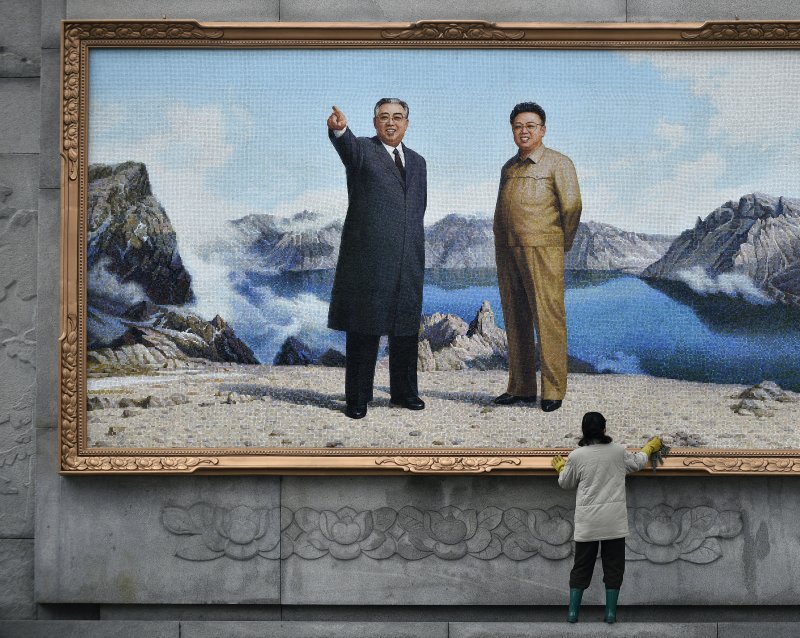A North Korean dissident writer who penned a series of short stories has met critical acclaim in the United States, but may be keeping a low profile after his book was translated into 21 languages. EPA/FRANCK ROBICHON
NEW YORK, Jan. 17 (UPI) -- North Korea's first known dissident writer still living in the country has become unreachable since his book has been published in the United States and translated into 21 languages, a South Korean activist said Tuesday.
Do Hee-yun, who made arrangements to smuggle the manuscript out of North Korea, told an audience at the New York Public Library the author of The Accusation has not been in communication with defectors.
"We cannot make contact right now," Do said. "But I have not found evidence he is in any way in danger."
The South Korean activist added Bandi, the pseudonym for the North Korean author of a series of stories about life inside the dictatorship, has been out of touch with relatives since at least February 2017, when his book was republished in Korean.
In March 2017, Grove Press published the book in the United States.
Do has been careful about making direct contact with Bandi because "security is of utmost priority," even as his works of fiction have been met with critical acclaim in the United States.
"With international influence, part of me is fearful of a retaliatory response from the North Korean government," the activist said. "We are watching how the North Korean government is responding, if at all."
"If they say the book is a lie, Bandi is fake, we are prepared for those charges."
The short stories in The Accusation, however, may be anything but a fabrication.
Do said the stories have a ring of authenticity because of the author's portrayal of ordinary North Koreans at all levels of the caste system, and the "love" among the protagonists amid hardships.
While the book provides an intimate glimpse into life in North Korea, it may be having the greatest impact on defectors who lived through those hard times.
Justin Seo, a North Korean refugee who resettled in Rochester, N.Y., said reading the stories brought him back to North Korea because the tales were "heartbreaking."
Seo, who rarely reads because books make him "fall asleep," said he "finished the stories in one day."
Do said a woman defector who helped with the localization of the Korean text in South Korea also had a strong reaction.
"This book, we defectors have to read first, because through the book we realize we have been fooled, we recognize human rights abuses for what they are," the woman said, according to Do.
Do came across the book while focusing on his main work: Rescuing North Korean refugees in China who are at risk of forcible repatriation.
"The book came into South Korean hands because of the imprisonment of a North Korean woman defector in China," Do said.
The woman was a relative of the dissident writer, who had initially asked her to smuggle his manuscript out of the country when she disclosed plans to leave.
Unsure of her safety, the defector said she would return to collect the manuscript.
It was during her period of arrest Do, working with a broker in China, made arrangements for her passage to the South.
As a way of thanking the South Korean activist, the woman said a manuscript of stories condemning the regime was waiting to be picked up and delivered to the outside world.
"Heaven helped us get this manuscript out," Do said, adding he was most worried about the physical condition of the document, because it could crumble as it made its way out of North Korea.
"The state of the manuscript was fragile so it took time to move it to a digital format."
The activist, like many others at the front lines of North Korean human rights, had been toiling away in obscurity when he made contact with the document, and indirectly with Bandi.
South Korean public interest in the book has been rapidly dwindling since its initial publication, and interest dropped after May 2017, Do told UPI.
Seoul is preparing to host the 2018 Pyeongchang Winter Olympics, and North Korea's overtures for reconciliation may be quickly changing social attitudes toward the Kim Jong Un regime.
But Do says he's prepared to deal with North Korea's condemnations despite the careful silence from Pyongyang.
"There is no way North Korea doesn't know about this book, knowing the reach it has had," he said.















